
Pirin Mountains: Bulgaria's Alpine Gem
Nestled in the southwest of Bulgaria, the Pirin Mountains are a stunning alpine paradise that beckons adventurous souls and nature lovers alike. A UNESCO World Heritage site, the range offers an array of breathtaking landscapes, from rugged peaks and serene glacial lakes to lush forests and vibrant meadows. The highest peak, Vihren, stands at 2,914 meters, presenting a thrilling challenge for hikers and climbers. The Pirin Mountains are not only about physical adventures; they are also rich in biodiversity. The region is home to a variety of wildlife, including bears, chamois, and golden eagles, making it a haven for animal enthusiasts and bird watchers. Flora is equally impressive, with over 1,300 plant species, some of which are endemic to the area. For those seeking cultural experiences, the nearby town of Bansko offers a charming blend of traditional Bulgarian architecture and cozy taverns, where you can savor local dishes and immerse yourself in the warm hospitality of the Bulgarian people. Whether you're scaling heights, exploring forests, or enjoying local culture, the Pirin Mountains promise an unforgettable journey through one of Bulgaria's most beautiful natural landscapes.
Local tips in Pirin Mountains
- Visit during late spring or early autumn for the best hiking conditions and to avoid the summer crowds.
- Pack layers of clothing as weather in the mountains can change rapidly.
- Hire a local guide if planning to hike Vihren Peak for a safer and more informative experience.
- Try the local dish 'kapama' in Bansko, a hearty stew perfect for replenishing energy after a day of hiking.
- Carry cash, as some remote areas and small establishments may not accept credit cards.
Pirin Mountains: Bulgaria's Alpine Gem
Nestled in the southwest of Bulgaria, the Pirin Mountains are a stunning alpine paradise that beckons adventurous souls and nature lovers alike. A UNESCO World Heritage site, the range offers an array of breathtaking landscapes, from rugged peaks and serene glacial lakes to lush forests and vibrant meadows. The highest peak, Vihren, stands at 2,914 meters, presenting a thrilling challenge for hikers and climbers. The Pirin Mountains are not only about physical adventures; they are also rich in biodiversity. The region is home to a variety of wildlife, including bears, chamois, and golden eagles, making it a haven for animal enthusiasts and bird watchers. Flora is equally impressive, with over 1,300 plant species, some of which are endemic to the area. For those seeking cultural experiences, the nearby town of Bansko offers a charming blend of traditional Bulgarian architecture and cozy taverns, where you can savor local dishes and immerse yourself in the warm hospitality of the Bulgarian people. Whether you're scaling heights, exploring forests, or enjoying local culture, the Pirin Mountains promise an unforgettable journey through one of Bulgaria's most beautiful natural landscapes.
When is the best time to go to Pirin Mountains?
Iconic landmarks you can’t miss
Pirin National Park
Explore the breathtaking landscapes, diverse wildlife, and adventure opportunities at Pirin National Park in Bulgaria, a UNESCO World Heritage Site.
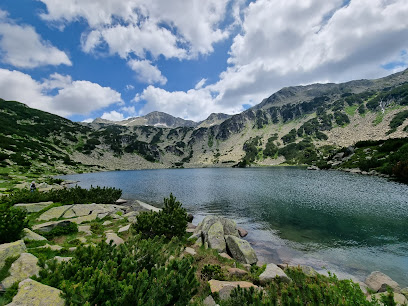
Popina Laka Waterfall
Explore the enchanting Popina Laka Waterfall, a hidden gem in Bulgaria's natural landscape, perfect for nature lovers and adventure seekers alike.
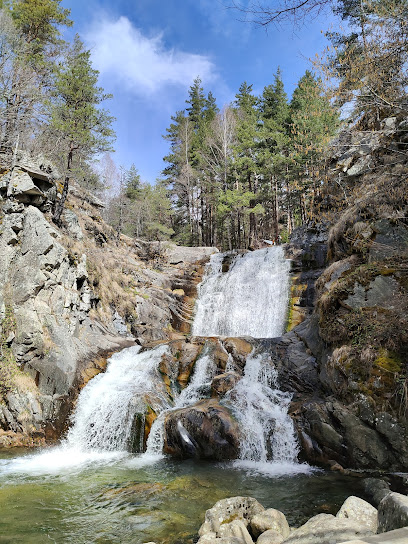
Popina Luka
Explore the beauty and relaxation of Popina Luka, a hidden gem in Bulgaria that offers a unique blend of local culture and stunning natural scenery.
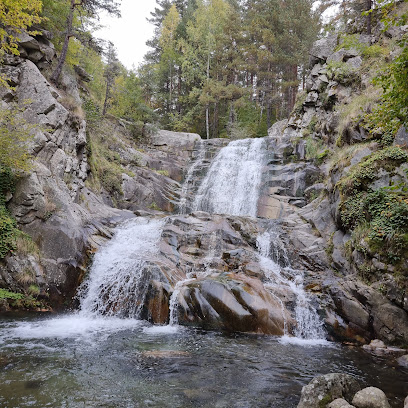
Rozhen Sandstone Pyramids
Experience the breathtaking beauty of Rozhen Sandstone Pyramids, a mesmerizing hiking area rich in natural wonders and cultural heritage in Bulgaria.
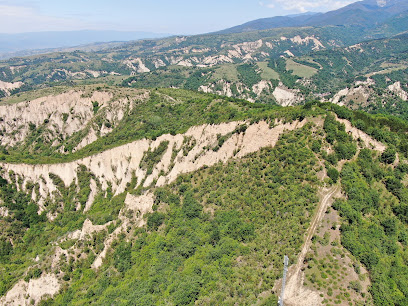
Monument Paisius of Hilendar
Explore the Monument Paisius of Hilendar in Bansko, a cultural symbol celebrating Bulgaria's rich historical heritage amidst stunning mountain scenery.
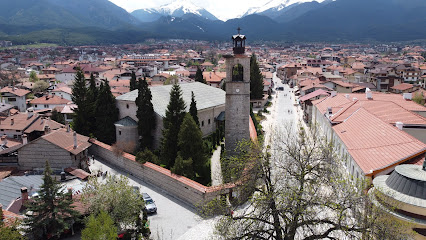
Melnik Sandstone Pyramids
Discover the breathtaking Melnik Sandstone Pyramids, a natural wonder sculpted over millennia, offering stunning landscapes and hiking trails.
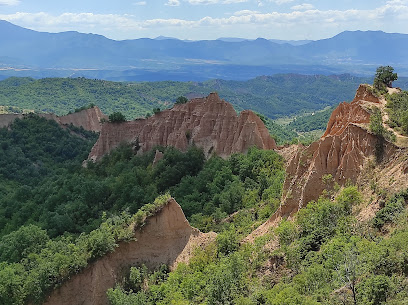
Monumento Al Héroe Búlgaro.
Discover the Monumento Al Héroe Búlgaro, a stunning tribute to Bulgaria's heroes set against the breathtaking backdrop of the Pirin mountains.
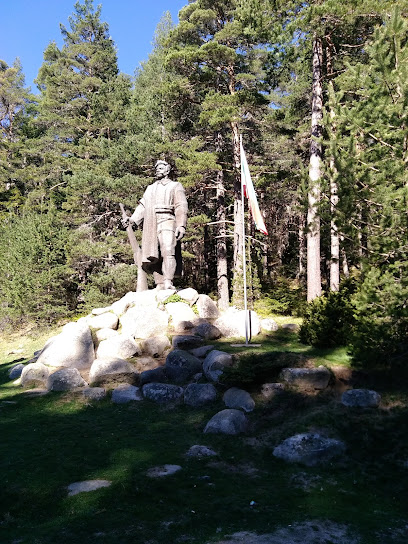
shelter springs
Discover the serene beauty of Shelter Springs in Bansko, Bulgaria—your perfect escape for relaxation and adventure amidst nature.
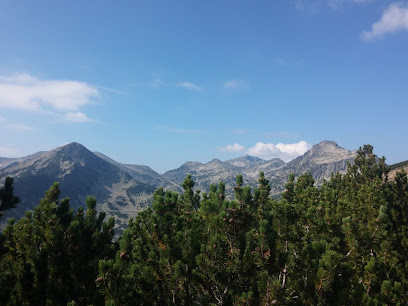
Unmissable attractions to see
Baba Vanga House Museum in Rupite
Explore the Baba Vanga House Museum in Rupite, a captivating destination that unveils the life and prophecies of Bulgaria's famed clairvoyant amidst stunning natural beauty.
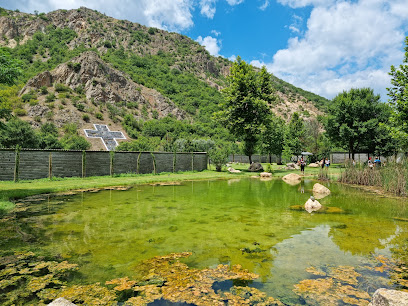
Park St. Vrach
Explore the breathtaking beauty and tranquility of Park St. Vrach in Sandanski, a perfect retreat for nature lovers and families alike.
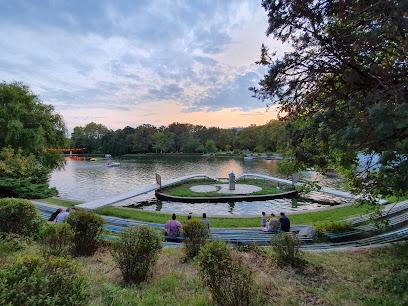
Pirin National Park
Discover the breathtaking beauty of Pirin National Park: Alpine peaks, glacial lakes, and rich biodiversity await in Bulgaria's natural paradise.
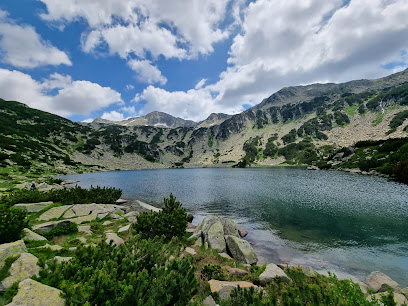
Banderishka meadow
Discover Banderishka Meadow in Bansko: Skiing in winter, hiking in summer, and stunning mountain views year-round!
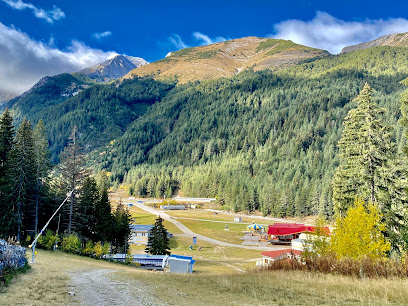
Baikushev's pine
Explore Baikushev's Pine, Bulgaria's ancient natural marvel, surrounded by breathtaking mountain landscapes and pristine nature in Bansko.
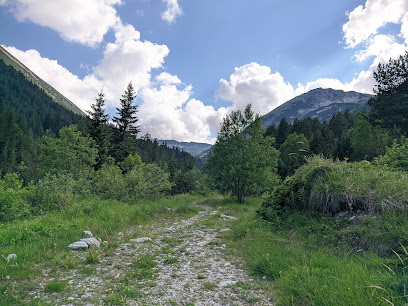
Holy Trinity Church
Discover the serene beauty and rich history of Holy Trinity Church in Bansko, a stunning Orthodox gem nestled in the Pirin Mountains.
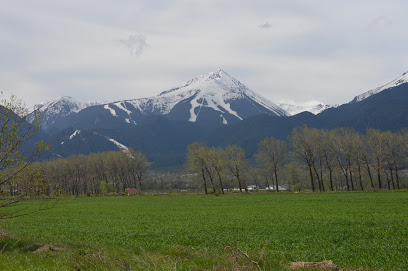
Popina Laka Waterfall
Experience the serene beauty of Popina Laka Waterfall in Sandanski, Bulgaria - a natural wonder perfect for relaxation and exploration.
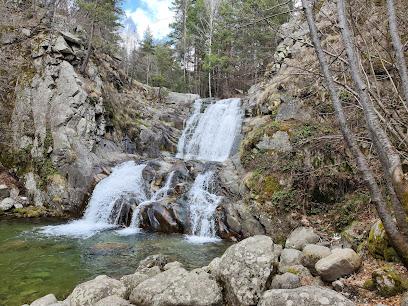
Stapalata Scenic Walk
Experience the tranquil beauty of Stapalata Scenic Walk, a perfect blend of nature and recreation in the vibrant Vasil Levski area.
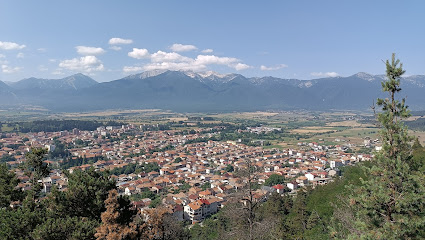
House Museum of Nikola Vaptsarov
Explore the House Museum of Nikola Vaptsarov in Bansko and immerse yourself in the rich literary heritage of Bulgaria.
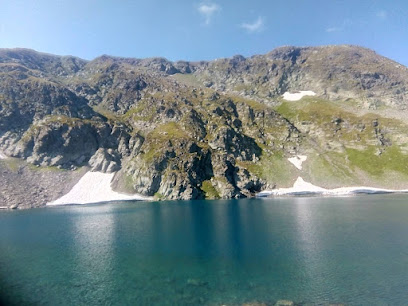
Popina Luka
Experience the natural beauty and local flavors at Popina Luka, a serene rest stop and tourist attraction in Bulgaria.
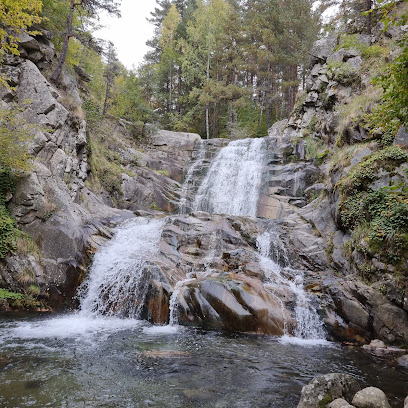
Bezbog Lake
Discover the serene beauty of Bezbog Lake in Pirin National Park: a glacial paradise offering hiking, stunning views, and a peaceful escape.
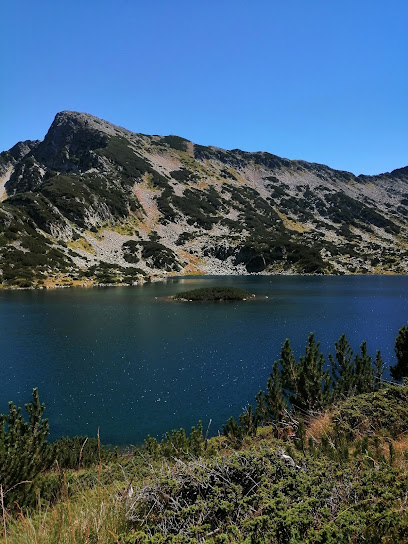
Lake Muratovo
Discover the serene beauty of Lake Muratovo in the Pirin Mountains, a perfect alpine escape near Bansko for hikers and nature lovers.
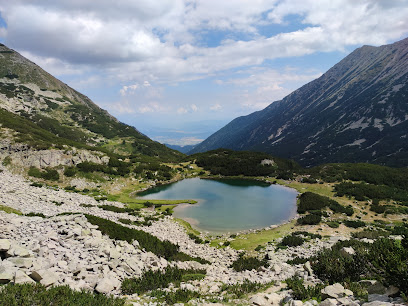
Peak Bezbog
Experience the breathtaking beauty of Peak Bezbog in Bulgaria's Pirin Mountains, a paradise for hikers and nature lovers alike.
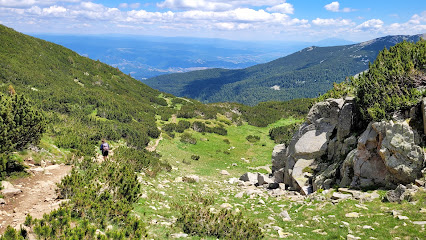
St. Nicholas Waterfall
Experience the breathtaking beauty of St. Nicholas Waterfall, a natural gem in Bansko, Bulgaria, perfect for nature lovers and adventure seekers.
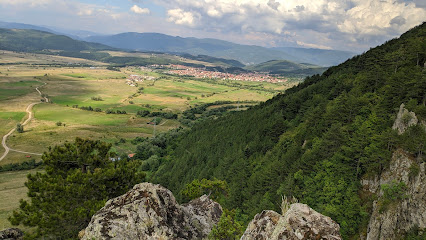
Off Road Bansko JEEP Tours
Explore the stunning landscapes of Bansko with thrilling JEEP tours that promise unforgettable adventures in Bulgaria's majestic mountains.
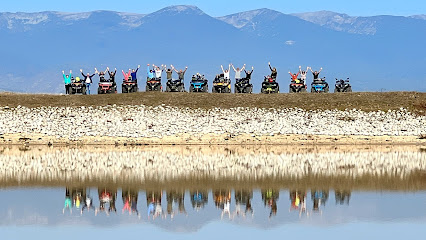
Essential places to dine
The House
Experience authentic Bulgarian cuisine at The House in Bansko – where tradition meets taste in a cozy mountain setting.
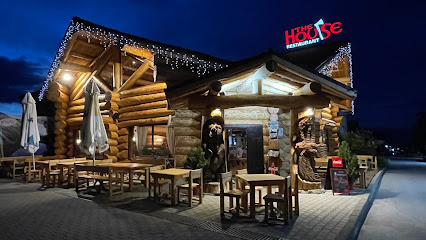
Mehana Chevermeto
Discover the essence of Bulgarian cuisine at Mehana Chevermeto in Bansko - where tradition meets flavor.
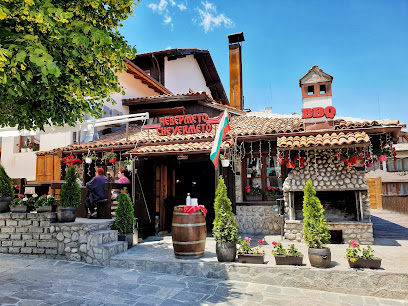
Queen's Pub Bansko / Куинс пъб Банско
Experience authentic Bulgarian cuisine and vibrant nightlife at Queen's Pub Bansko - a culinary gem in the heart of this enchanting mountain town.
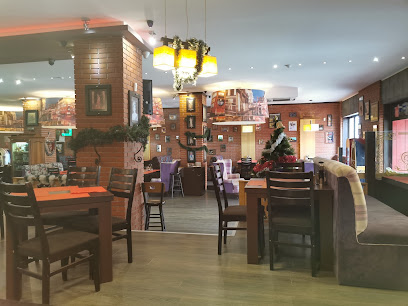
Restaurant Iazovir Krinetz
Experience authentic Bulgarian cuisine at Restaurant Iazovir Krinetz in Bansko - where delicious meets affordable in a cozy atmosphere.
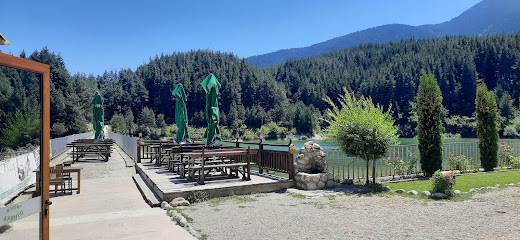
Ribarnika
Experience fresh seafood delights at Ribarnika in Dobrinishte - where local flavors meet stunning natural beauty.
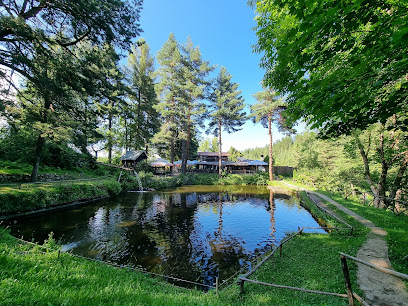
Obetsanova mehana
Experience authentic Bulgarian cuisine at Obetsanova Mehana in Bansko, where delicious food meets vibrant culture.
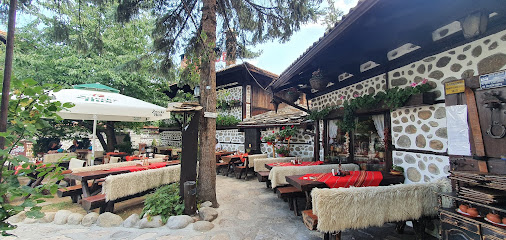
Euphoria
Discover Euphoria in Bansko: where exquisite cuisine meets warm hospitality in the heart of Bulgaria's stunning mountain landscape.
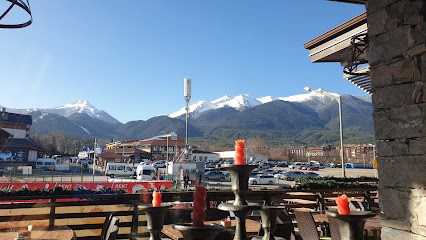
Mehana Bai Kotse
Discover authentic Bulgarian cuisine at Mehana Bai Kotse in Bansko - where tradition meets taste in every delicious dish.
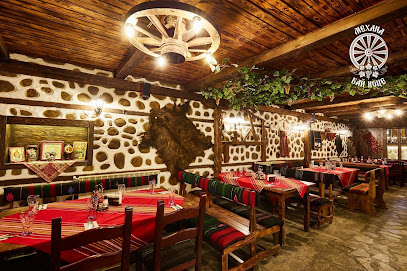
Kasapinova Mehana
Savor the authentic flavors of Bulgaria at Kasapinova Mehana in Bansko's enchanting Old Town.
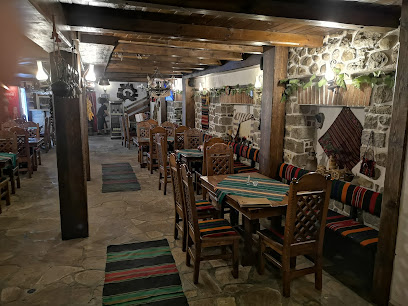
Mehana Dedo Yonkata
Discover authentic Bulgarian flavors at Mehana Dedo Yonkata in Bansko - a culinary gem offering traditional dishes in a cozy atmosphere.
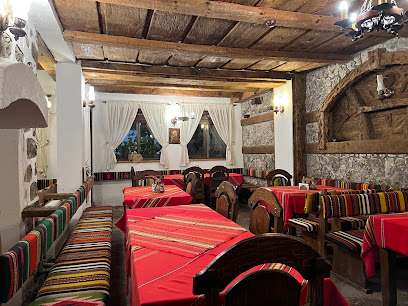
The Log House Bansko
Discover the flavors of Bulgaria and Italy at The Log House Bansko - a cozy retreat amidst stunning mountain vistas.
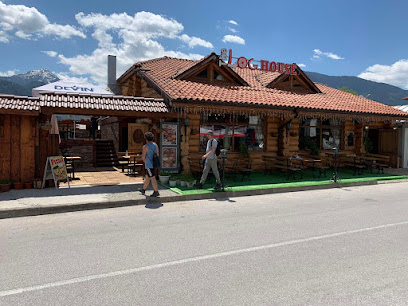
Valevitsata Tavern
Experience the taste of Bulgaria at Valevitsata Tavern - where traditional flavors meet warm hospitality in the heart of Bansko.
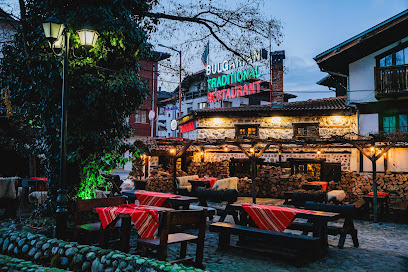
Vodenitsata Traditional Restaurant
Experience authentic Bulgarian cuisine at Vodenitsata Traditional Restaurant in Bansko - where tradition meets flavor.
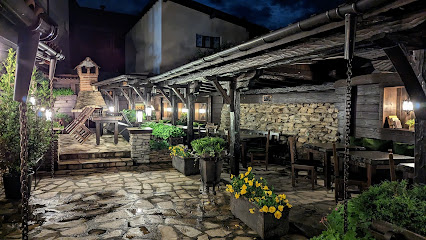
Dedo Tase Traditional Restaurant
Savor authentic Bulgarian flavors at Dedo Tase Traditional Restaurant in Bansko - a must-visit dining destination for food lovers.
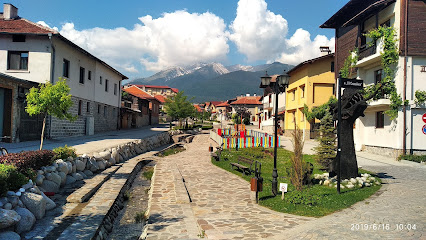
Bunare Ethno Restaurant
Experience authentic Bulgarian cuisine at Bunare Ethno Restaurant in Bansko – a must-visit for food lovers seeking traditional flavors.
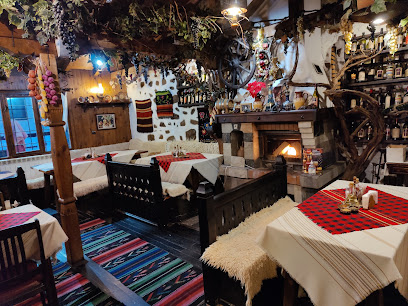
Markets, malls and hidden boutiques
Ski & Board Traventuria
Unleash your winter spirit at Ski & Board Traventuria, Bansko's premier destination for ski rentals, lessons, and unforgettable outdoor adventures.
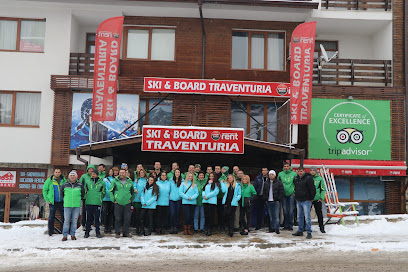
Mega Ski Center - Bansko ski hire & rent
Discover the ultimate skiing experience at Mega Ski Center in Bansko, where adventure and quality gear meet breathtaking mountain views.

Supermarket Stodja
Explore the culinary treasures of Gotse Delchev at Supermarket Stodja, where local flavors and traditional products await every visitor.

sNOw LIMIT shop and rent
Explore the thrill of snowboarding at sNOw LIMIT in Bansko, where quality gear and expert services meet adventure on the slopes.
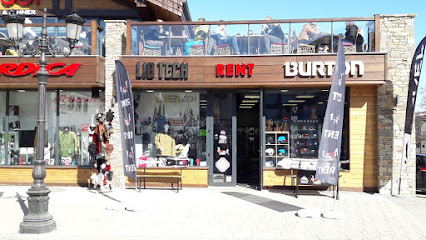
Bohotopia Varna Gift Shop - Магазин за Подаръци
Explore Bohotopia Varna Gift Shop for unique souvenirs and artistic treasures that capture the spirit of Bulgaria.
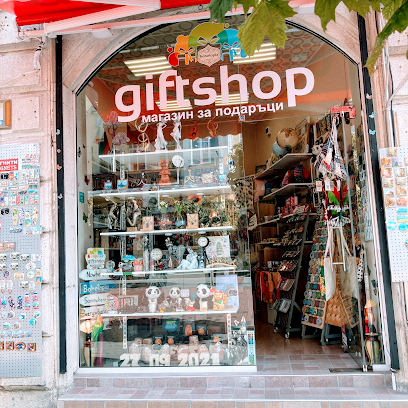
Pirin Supermarket
Explore the essence of Bulgarian cuisine at Pirin Supermarket, your local grocery store in Bansko, offering fresh produce and traditional delicacies.

Pirin Tex
Discover the essence of Bulgarian fashion at Pirin Tex, a premier clothing store in Gotse Delchev, where style meets local craftsmanship.

City Market
Explore Gotse Delchev's City Market for fresh local produce, artisan goods, and a taste of authentic Bulgarian culture.
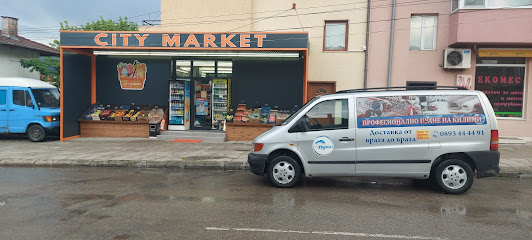
Книжарница Перун- ВС
Explore the enchanting Книжарница Перун- ВС in Gotse Delchev, where every book tells a story and every visit is a new adventure.
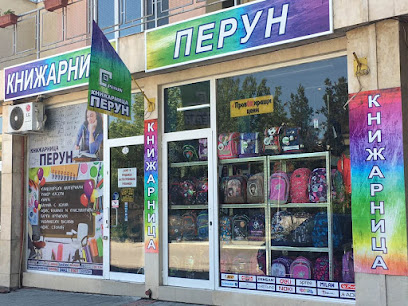
Люмана и КО ООД
Discover unique home goods and local craftsmanship at Lyumana & Co in Gotse Delchev, a must-visit for travelers seeking quality products.
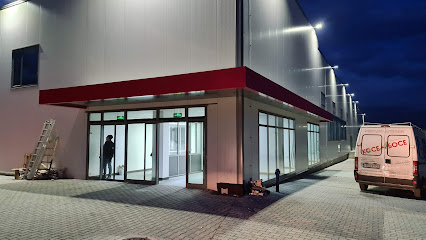
Рибарски Мечти Лов Риболов Туризъм
Explore Ribaraski Mechti in Gotse Delchev – your destination for top-notch fishing and hunting gear in Bulgaria's stunning outdoors.
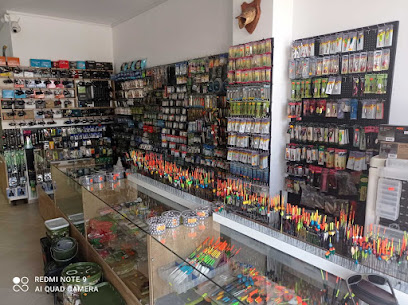
Gift Shop - Bansko
Discover a charming gift shop in Bansko featuring unique souvenirs, bridal accessories, toys, and beautiful floral arrangements.

NargileMM Gotse Delchev
Discover the best hookah experience in Gotse Delchev at NargileMM, where quality meets tradition.
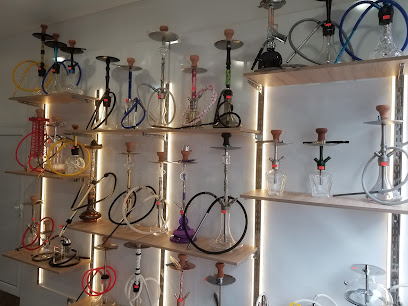
Interpred Partner
Discover the latest in fashion at Interpred Partner, a premier clothing store in Gotse Delchev, offering a unique blend of styles and exceptional service.

Fontana
Discover an extensive range of office supplies and essential stationery at Fontana, the premier store in Gotse Delchev for all your organizational needs.

Essential bars & hidden hideouts
Queen's Pub Bansko / Куинс пъб Банско
Discover the perfect blend of Bulgarian tradition and modern flavors at Queen's Pub, the heart of Bansko's culinary scene.
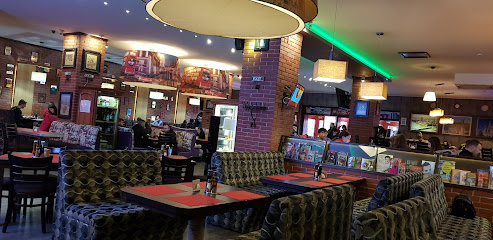
Pirin 75
Experience the vibrant nightlife at Pirin 75, a cozy bar in Bansko with a diverse drink selection and welcoming atmosphere.
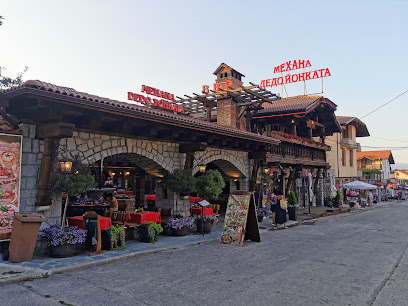
Lion's pub
Experience the vibrant atmosphere of Lion's Pub in Bansko, where delicious food, a wide selection of drinks, and friendly service create unforgettable nights.
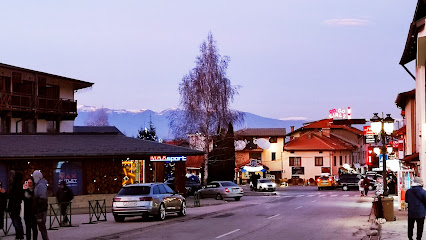
Nova Bar
Discover the vibrant Nova Bar in Bansko, where locals and tourists mingle over drinks in a welcoming atmosphere.
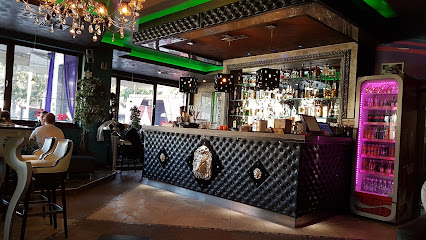
Irish Harp Pub
Discover the heart of Irish culture in Bansko at the Irish Harp Pub, where great food, drinks, and live music await.
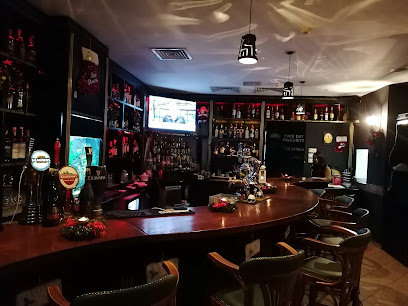
OSCAR Wine Bar & Gastro
Discover OSCAR Wine Bar & Gastro in Bansko, where fine wines and gourmet cuisine unite for an unforgettable dining experience.
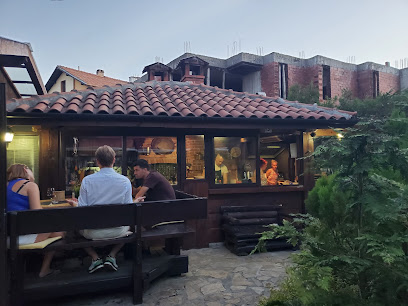
Oxygen
Experience the vibrant nightlife at Oxygen Bar in Bansko, where refreshing drinks and a lively atmosphere await every visitor.
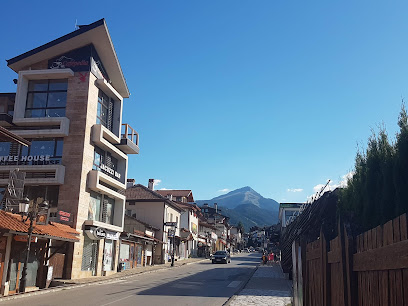
Alpine Bar
Discover the cozy ambiance and stunning views at Alpine Bar, Bansko's ideal spot to unwind after mountain adventures.
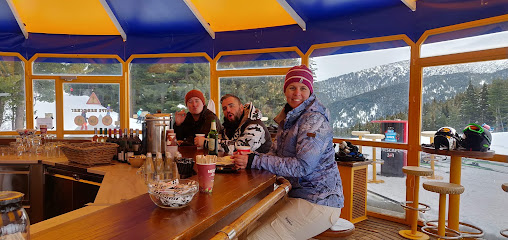
Pivoteka Craft Beer Mountain Base
Experience the finest craft beers in Bansko at Pivoteka Craft Beer Mountain Base, where quality meets a cozy atmosphere.
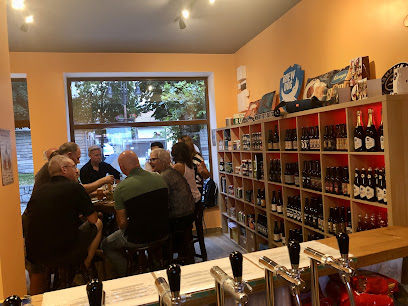
The Kettles
Unwind at The Kettles, Bansko's charming bar offering local drinks and a cozy atmosphere, perfect for relaxing after your adventures.

Alexandra Bar
Discover the chic Alexandra Bar in Bansko, where expertly crafted cocktails meet a cozy atmosphere and friendly service for an unforgettable night.
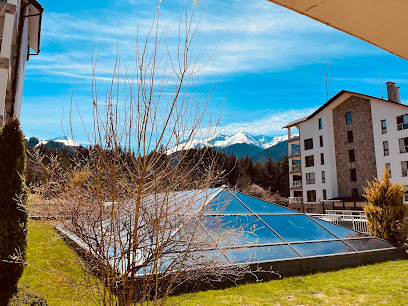
Apres Ski Bar
Experience the cozy and vibrant atmosphere of Apres Ski Bar in Bansko, the ideal retreat after an adventurous day on the slopes.
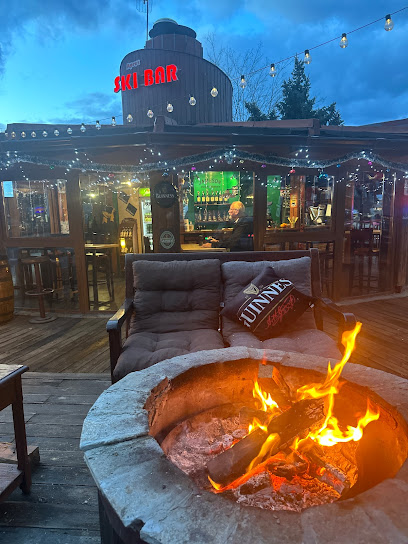
sCHEERS Bar&Coffee
Discover the perfect blend of cozy ambiance and exquisite beverages at sCHEERS Bar&Coffee in Bansko.
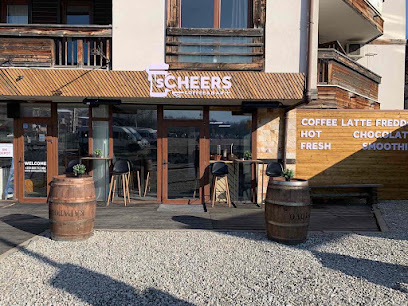
The Lobby Bar
Discover elegance and comfort at The Lobby Bar in Bansko, where every drink is a toast to relaxation after a day of adventure.
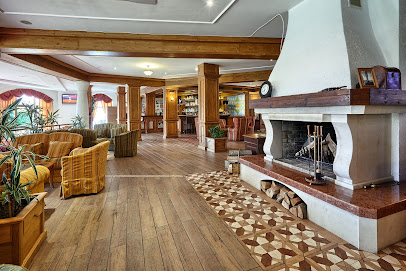
Local Phrases about Pirin Mountains
-
- HelloЗдравей
[Zdravey] - GoodbyeДовиждане
[Dovizhdane] - YesДа
[Da] - NoНе
[Ne] - Please/You're welcomeМоля
[Molya] - Thank youБлагодаря
[Blagodarya] - Excuse me/SorryИзвинявай
[Izvinyavay] - How are you?Как си?
[Kak si?] - Fine. And you?Добре. А ти?
[Dobre. A ti?] - Do you speak English?Говорите ли английски?
[Govorite li angliyski?] - I don't understandНе разбирам
[Ne razbiram]
- HelloЗдравей
-
- I'd like to see the menu, pleaseЩе видя менюто, моля
[Shte vidya menuto, molya] - I don't eat meatНе ям месо
[Ne yam meso] - Cheers!На здраве!
[Na zdrave!] - I would like to pay, pleaseИскам да платя, моля
[Iskam da patya, molya]
- I'd like to see the menu, pleaseЩе видя менюто, моля
-
- Help!Помощ!
[Pomosht!] - Go away!Отпишете се!
[Otpishete se!] - Call the Police!Обадете се на полицията!
[Obadete se na politsiyata!] - Call a doctor!Обадете се на лекар!
[Obadete se na lekar!] - I'm lostЗагубих се
[Zagubih se] - I'm illБолен съм
[Bolen sam]
- Help!Помощ!
-
- I'd like to buy...Искам да купя...
[Iskam da kupya...] - I'm just lookingСамо гледам
[Samo gledam] - How much is it?Колко струва?
[Kolko struva?] - That's too expensiveТова е твърде скъпо
[Tova e tvurde skapo] - Can you lower the price?Можете ли да намалите цената?
[Mojete li da namalite tsenata?]
- I'd like to buy...Искам да купя...
-
- What time is it?Колко е часът?
[Kolko e chasat?] - It's one o'clockЕдин час
[Edin chas] - Half past (10)Половина на (10)
[Polovina na (10)] - MorningСутрин
[Sutrin] - AfternoonСледобед
[Sledobed] - EveningВечер
[Vecher] - YesterdayВчера
[Vchera] - TodayДнес
[Dnes] - TomorrowУтре
[Utre] - 1Едно
[Edno] - 2Две
[Dve] - 3Три
[Tri] - 4Четири
[Chetiri] - 5Пет
[Pet] - 6Шест
[Shest] - 7Седем
[Sedem] - 8Осем
[Osem] - 9Девет
[Devet] - 10Десет
[Deset]
- What time is it?Колко е часът?
-
- Where's a/the...?Къде е...
[Kade e...] - What's the address?Какъв е адресът?
[Kakav e adresat?] - Can you show me (on the map)?Можете ли да ми покажете (на картата)?
[Mojete li da mi pokazhete (na kartata)?] - When's the next (bus)?Кога е следващият (автобус)?
[Koga e sledvashtiyat (avtobus)?] - A ticket (to ....)Билет (за ....)
[Bilet (za ....)]
- Where's a/the...?Къде е...
History of Pirin Mountains
-
The Pirin Mountains have been inhabited since ancient times, with traces of Thracian settlements found in the region. The Thracians, known for their warrior culture and intricate metalwork, left behind numerous artifacts, including pottery, tools, and weapons. These relics provide a glimpse into the early life and customs of the people who once roamed these rugged landscapes.
-
During the Roman era, the Pirin Mountains were integrated into the vast Roman Empire. The Romans built roads and fortifications to secure their control over the region, facilitating trade and military movement. Remnants of Roman roads and fortresses can still be found, bearing witness to the strategic importance of the Pirin Mountains in antiquity.
-
In the medieval period, the Pirin Mountains became a crucial part of the Bulgarian Kingdom. The region witnessed numerous battles and skirmishes as Bulgaria defended its territory against Byzantine and later Ottoman forces. The mountain's natural fortifications provided a strategic advantage, and many fortresses and monasteries were built during this time, some of which remain intact and are significant historical sites today.
-
The Ottoman conquest in the late 14th century brought significant changes to the Pirin region. The mountains became a haven for rebels and resistance fighters, known as hajduks, who opposed Ottoman rule. These freedom fighters utilized the dense forests and rugged terrain of the mountains to launch guerrilla attacks, becoming legends in Bulgarian folklore.
-
The 18th and 19th centuries marked a period of National Revival for Bulgaria, with the Pirin Mountains playing a key role. The region saw a resurgence in Bulgarian cultural and national identity, with the establishment of schools, churches, and monasteries. Notable figures, such as the revolutionary Yane Sandanski, used the mountains as a base for their activities, contributing to the eventual liberation of Bulgaria from Ottoman rule.
-
In the 20th century, the Pirin Mountains gained recognition for their natural beauty and biodiversity. In 1962, a portion of the mountains was designated as Pirin National Park, aiming to preserve the unique flora and fauna of the region. The park was later expanded and in 1983, it was listed as a UNESCO World Heritage Site, highlighting its global significance and ensuring its protection for future generations.
Pirin Mountains Essentials
-
The Pirin Mountains are located in southwestern Bulgaria. The nearest major city is Bansko, which is a popular gateway to the mountain range. The closest international airport is Sofia International Airport, approximately 160 kilometers away. From Sofia, you can take a bus or a train to Bansko, which typically takes around 2.5 to 3 hours. Alternatively, renting a car is an excellent option for those who wish to explore the area at their own pace.
-
In Bansko, local taxis and buses are readily available. For those looking to venture deeper into the Pirin Mountains, renting a car is highly recommended. Several rental agencies operate in Sofia and Bansko. During the winter season, shuttle services are available to various ski resorts. Hiking is the best way to explore the mountains, with numerous well-marked trails catering to all levels of experience.
-
The official currency in Bulgaria is the Bulgarian Lev (BGN). Credit and debit cards are widely accepted in hotels, restaurants, and shops in Bansko. However, it is advisable to carry some cash, especially when heading into more remote areas of the Pirin Mountains. ATMs are available in Bansko, but they might be scarce in smaller villages.
-
The Pirin Mountains are generally safe for tourists. However, it's essential to take standard precautions such as avoiding walking alone at night in unfamiliar areas and keeping an eye on your belongings in crowded places. There are no specific high-crime areas targeting tourists, but it is always wise to stay vigilant. When hiking, always inform someone of your planned route and estimated return time.
-
In case of emergency, dial 112 for immediate assistance. Bansko has a local police station and medical facilities. It is recommended to have travel insurance that covers medical emergencies and outdoor activities like hiking or skiing. For minor health issues, there are pharmacies in Bansko where you can purchase over-the-counter medications.
-
Fashion: Do dress in layers, as mountain weather can be unpredictable. Don't forget sturdy hiking boots for trails. Religion: Do respect local customs and traditions, especially in monasteries and churches. Public Transport: Do be courteous and give up your seat to elderly passengers. Don't play loud music or make excessive noise. Greetings: Do greet people with a smile and a handshake. Eating & Drinking: Do try local dishes like banitsa and shopska salad. Don't refuse homemade rakia, as it is considered a gesture of hospitality.
-
To experience the Pirin Mountains like a local, visit the traditional villages such as Dobrinishte and Melnik. Engage with locals, who are often friendly and eager to share their knowledge of the region's history and culture. Don't miss the opportunity to hike to the Vihren Peak, the highest in the Pirin Mountains. For a unique experience, visit the mineral baths in Dobrinishte, known for their healing properties.
Nearby Cities to Pirin Mountains
-
Things To Do in Kavala
-
Things To Do in Thessaloniki
-
Things To Do in Haskovo
-
Things To Do in Katerini
-
Things To Do in Stara Zagora
-
Things To Do in Kamenica
-
Things To Do in Gjilan
-
Things To Do in Gabrovo
-
Things To Do in Alexandroupoli
-
Things To Do in Ferizaj
-
Things To Do in Pleven
-
Things To Do in Shtime
-
Things To Do in Niš
-
Things To Do in Larissa
-
Things To Do in Podujevo













